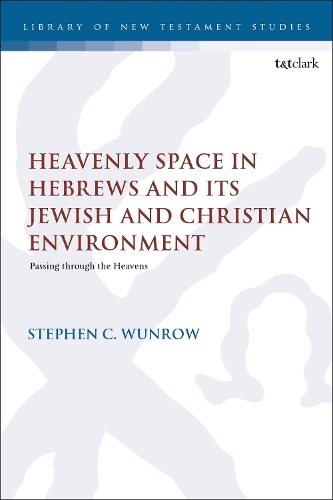
Heavenly Space in Hebrews and Its Jewish and Christian Environment: Passing through the Heavens
(Hardback)
Publishing Details
Heavenly Space in Hebrews and Its Jewish and Christian Environment: Passing through the Heavens
By (Author) Visiting Assistant Professor Stephen C. Wunrow
Bloomsbury Publishing PLC
T.& T.Clark Ltd
10th July 2025
United Kingdom
Classifications
Professional and Scholarly
Non Fiction
Judaism: sacred texts and revered writings
Criticism and exegesis of sacred texts
227.8706
Physical Properties
Hardback
208
Width 164mm, Height 236mm, Spine 18mm
460g
Description
Stephen Wunrow addresses the pressing question of what the author of Hebrews meant by his descriptions of heaven, arguing that the author intended his references to heavenly space to be interpreted as realistic descriptions of a real place. Wunrow posits that language about heaven is neither metaphor nor a description of a place outside the creation, by examining other early Jewish and Christian texts that narrate or describe humans ascending into heaven. Given the nature and the function of heavenly space as described in these texts, Wunrow suggests it is most probable that the authors of the texts intended their descriptions of heavenly space to be understood as realistic.
Wunrow thus explores 1 and 2 Enoch, 4 Ezra, 2 and 3 Baruch, the Apocalypse of Abraham, the Testament of Levi, the Testament of Abraham, the Ascension of Isaiah, and Revelation; investigating how other roughly contemporary authors described heavenly space, and considering that the rhetorical aims of most of these authors fail unless their readers understand their descriptions of heavenly space in realistic ways. Turning then to examine Hebrews, Wunrow suggests that while the letter does contain unique features and rhetorical aims, it also fits comfortably with other early Jewish and Christian texts that describe humans ascending into heaven in a realistic manner. He concludes with reflections on how this conclusion helps to clarify other topics in Hebrews, including atonement and eschatology.
Author Bio
Stephen C. Wunrow is Visiting Assistant Professor at Wheaton College, USA.
